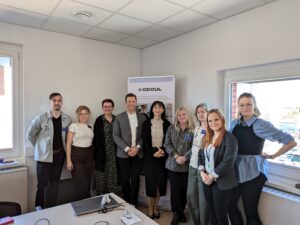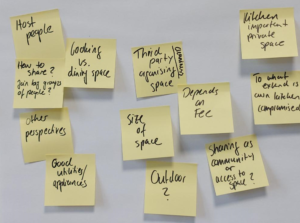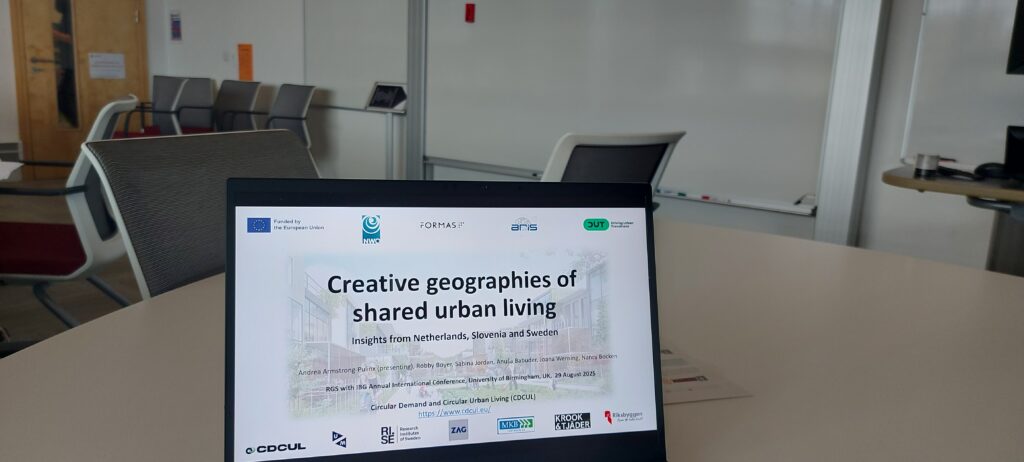
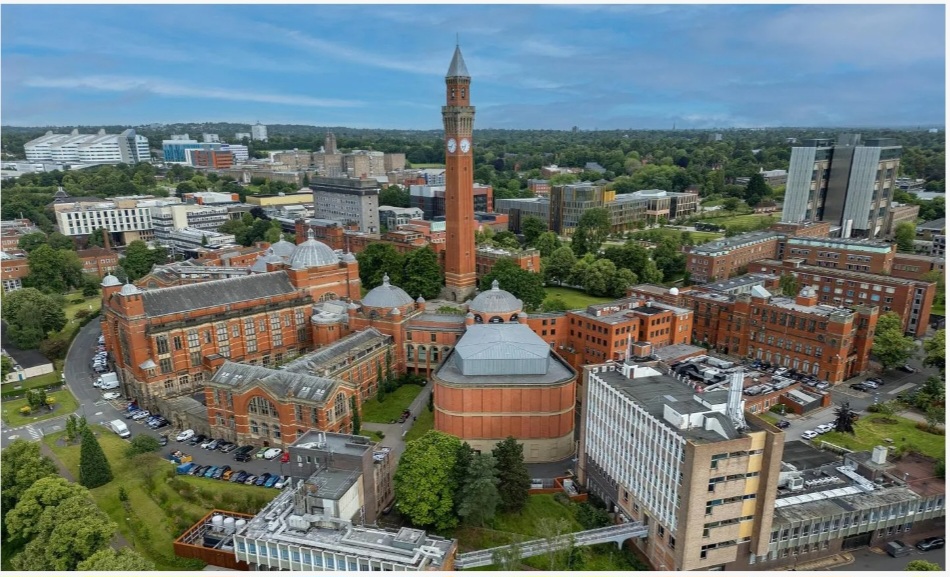
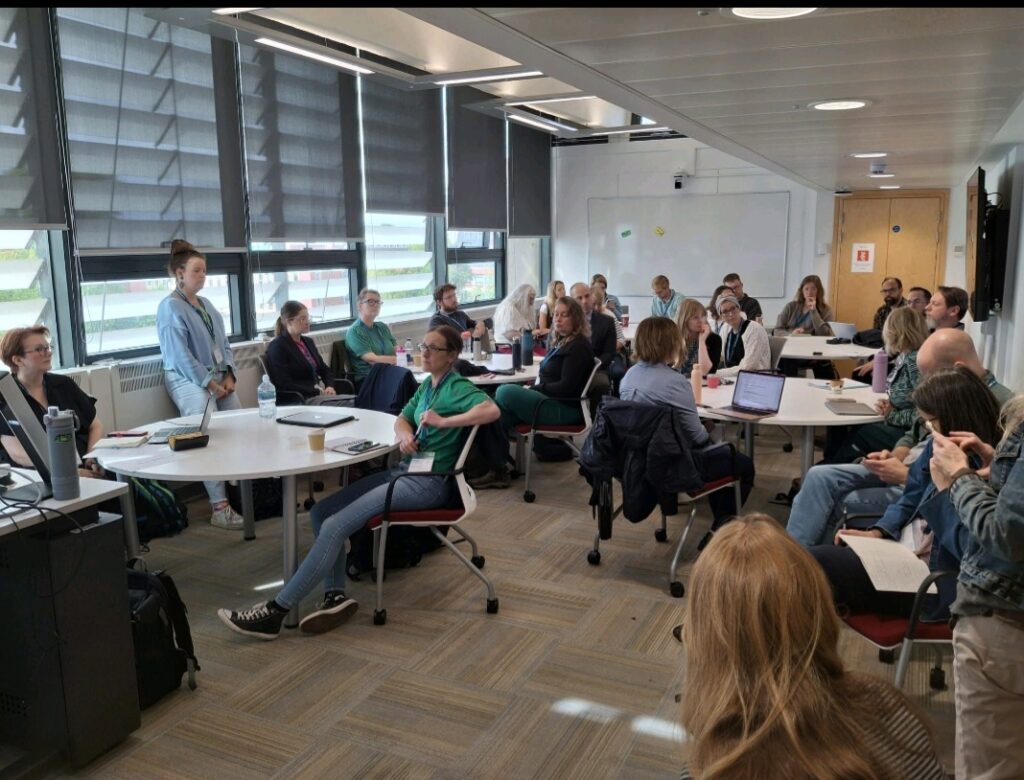
This year’s Royal Geographical Society Annual International Conference brought together researchers, policymakers, and practitioners to explore pressing global challenges under the theme of Geographies of Housing. On 29 August 2025, during Session 1: Geographies of Housing, Dr Andrea Armstrong-Pulinx (Maastricht Sustainability Institute) presented a paper on behalf of colleagues from the Consumer Demand and Circular Urban Living (CDCUL) project.
The paper, titled “Creative Geographies of Shared Urban Living: Insights from the Netherlands, Slovenia and Sweden,” examined how alternative housing models can help cities respond to escalating sustainability pressures.
Why Shared Housing Matters
Urban housing is at a critical crossroads. Increasing densification, resource scarcity, and the realities of climate change demand a shift away from resource-intensive private ownership toward more sustainable, shared-access models.
The presentation explored co-housing and co-living as two alternative models that disrupt conventional notions of private housing. While both offer promise for reducing environmental impact and fostering social connections, they face distinct challenges:
- Co-housing struggles with accessibility and scalability.
- Co-living, often driven by the market, risks becoming exploitative and exclusive, catering to narrow demographics rather than broad, inclusive needs.
A Creative Geography Perspective
Using the concept of creative geographies, the research team examined how shared-access living can reshape:
- Urban spaces – through design that prioritizes communal over private areas.
- Social interactions – fostering collaboration and reducing isolation.
- Sustainability transitions – by normalizing resource-sharing practices in everyday life.
Drawing on early findings from the Netherlands, Sweden, and Slovenia, the paper highlighted how shared living is already being tested in diverse urban contexts as part of the Driving Urban Transitions partnership under the CDCUL project.
Looking Ahead
While the sharing economy has been widely discussed in the context of digital platforms, housing designed for sharing remains underexplored as a deliberate public-sector strategy. This research bridges critical urban geography, housing studies, and sustainability policy, offering fresh insights into how cities can embrace circular and sharing economies to create inclusive, climate-resilient futures.
The CDCUL project continues to investigate how consumer practices and urban policy can align to support a just transition to circular urban living. Presenting at RGS-IBG 2025 was an exciting opportunity to share these ideas and spark dialogue about the future of housing in an era of climate and social change.


